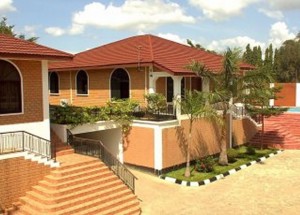World Habitat Day launched in Accra
 Ghana has marked World Habitat Day (WHD), the occasion used annually to create awareness across the world on urban development issues on the theme: ”Public Spaces for All.”
Ghana has marked World Habitat Day (WHD), the occasion used annually to create awareness across the world on urban development issues on the theme: ”Public Spaces for All.”
The day, which is celebrated every October 5, is also known as ‘Urban October’.
It is designated by the United Nations to reflect on the state of the towns and cities, and on the basic right of all to adequate shelter.
Fifty one per cent of Ghanaians are living in urban areas since 2010, hence the importance of WHD to enhance the sustainable development of the cities and towns.
In a speech read on his behalf at the event, Alhaji Collins Dauda, Minister of Local Development and Rural Development reiterated the resolve of government, and allied partners to adopt an inclusive approach to address human settlement in the country.
He said the WHD platform presents a unique opportunity for the media and other stakeholders to contribute constructively to the dialogue on addressing the planning of settlements, including housing and related services such as sanitation and water.
Alhaji Dauda said, the character of a city is defined by its streets and public spaces, adding that from squares and boulevards to neighborhood gardens and children playgrounds, public space frame city image.
He said the connective matrix of streets and public spaces forms the skeleton of the city upon which all else rest.
He said public space is a vital component of a prosperous city and a well design and managed public space is a key asset for a city’s functioning and has a positive impact on its economy, environment, safety, health, integration and connectivity.
The Minister who is also the Member of Parliament for Asutifi South said the quality of life for people in cities is directly related to the state of its public spaces.
He said Ghana has experienced challenges in the management of its rapidly growing cities, difficulties in managing population growth and provision of requisite infrastructure that will contribute to economic growth.
Dr Joan Clos, the Executive Director UN-Habitat in her message said public space provides room for social and cultural interaction and could foster a sense of belonging and pride in an area.
She said a public space that is open to all, regardless of ethnic origin, age or energy, provides a democratic forum for citizens and society and could bring communities together, providing meeting places and foster social ties.
Dr Clos said these spaces shape the cultural identity of an area, and are part of its unique character and provide a sense of place for local communities, adding that, “sharing common spaces is the soul of a city.”
Dr Kwaku Agyeman-Mensah, Minister of Water Resources, works and Housing said there is the proliferation of urban decay and expanding inequality in access to urban spaces leading to the springing up of slums.
He said the challenges to eliminate slums cannot be met unless government at all levels, adopt comprehensive housing policies, which adequately addresses the problems associated with urbanisation.
He said in Ghana and as in many countries of the developing world there were no such policies at all in the past until March this year when in Ghana launched her housing policy.
Dr Agyeman-Mensah said such policies have to be built on an enabling concept, involving stakeholders and mobilising available resources to ensure equitable allocation of public space that proactively considers in electricity and other essential services that people required to live dignified lives.
Source: GNA
